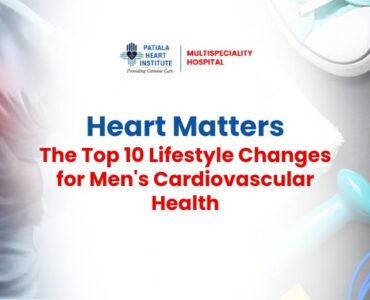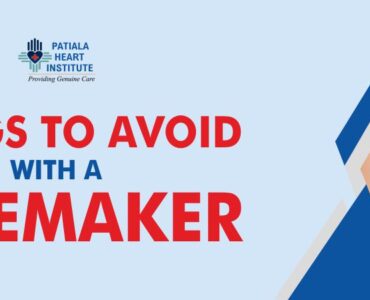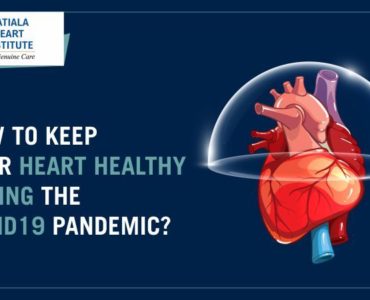The heart is the body’s engine, constantly working to keep blood and oxygen flowing throughout our systems. Just like any engine, it requires regular maintenance to function optimally. However, the type of care our hearts need evolves as we move through different stages of life. From young adults laying the foundation for future health to older adults managing chronic conditions, getting heart health check-up tests tailored to age is crucial to preventing heart disease and promoting long-term well-being.
This guide will explain the importance of comprehensive heart check-ups for different age groups, focusing on what to expect, when to get checked, and how each stage of life brings unique cardiovascular challenges. Understanding the specific needs of each age group helps craft a preventive strategy that improves longevity and enhances the quality of life.
Why do Heart Health Check-Ups Matter?
Heart disease remains the leading cause of death globally, accounting for nearly 18 million lives annually. The good news is that heart disease is often preventable with lifestyle changes, early detection, and timely interventions. Regular heart health check-ups are a cornerstone of preventive care, enabling individuals to track their cardiovascular health and address potential problems before they escalate.
However, the nature of these check-ups varies according to age. Different age groups face various risks, and understanding these age-specific risks allows for more targeted and effective screening.
Heart Health in Young Adults (18-30 Years)
Setting the Foundation for Lifelong Health
Many people feel invincible in young adulthood, dismissing heart health as a concern for later in life. However, habits developed during this period—good or bad—lay the groundwork for long-term heart health. The 18-30 age group typically has a low risk for heart disease, but this is the time to focus on prevention and early intervention.
Key Risk Factors
Young adults often underestimate the impact of lifestyle choices like poor diet, physical inactivity, smoking, and excessive alcohol consumption. These behaviors contribute to conditions such as high blood pressure (hypertension), high cholesterol, and obesity, which can escalate into more severe cardiovascular issues over time.
What to Expect in a Heart Check-Up
For individuals in this age group, heart health check-ups typically include:
- Blood pressure screening: High blood pressure can develop without symptoms, even in young adults.
- Cholesterol testing: High cholesterol levels can start early, increasing the risk of heart disease later in life.
- Body Mass Index (BMI) calculation: Monitoring weight is crucial for preventing obesity, a major risk factor for heart disease.
- Family history review: Understanding family history of heart disease can identify potential genetic risks.
Tips for Prevention
- Healthy diet: Adopt a balanced diet rich in fruits, vegetables, whole grains, and lean proteins.
- Regular physical activity: Aim for at least 150 minutes of moderate weekly exercise.
- Avoid smoking and excessive alcohol: Both are major contributors to heart disease.
- Stress management: Learn healthy coping mechanisms, such as yoga or meditation, to manage stress.
Heart Health in Middle-Aged Adults (30-50 Years)
The Warning Signs Begin
As individuals move into their 30s and 40s, the risks of heart disease increase due to the natural aging process, lifestyle factors, and potential onset of chronic conditions like hypertension or diabetes. This period is crucial for identifying early warning signs and making necessary adjustments to prevent the onset of cardiovascular disease.
Key Risk Factors
At this stage, common risk factors include:
- High blood pressure: Often called the “silent killer,” hypertension can quietly damage blood vessels, increasing the risk of heart attack or stroke.
- High cholesterol: Plaque buildup in arteries begins, leading to atherosclerosis.
- Diabetes: Uncontrolled blood sugar levels can damage the heart and blood vessels.
- Obesity: Excess weight strains the heart, making it work harder and increasing the risk of cardiovascular diseases.
What to Expect in a Heart Check-Up
For middle-aged adults, heart check-ups become more comprehensive:
- Blood pressure monitoring: Regular checks are critical, especially if a family history of hypertension exists.
- Cholesterol levels: A lipid panel will assess total cholesterol, LDL (bad cholesterol), HDL (good cholesterol), and triglycerides.
- Glucose testing: To check for diabetes or prediabetes, as uncontrolled blood sugar can damage the cardiovascular system.
- Electrocardiogram (ECG): This test can detect abnormalities in heart rhythm or early signs of heart disease.
- Stress test (if necessary): A stress test may be recommended if symptoms such as chest pain or shortness of breath occur during exercise.
Tips for Prevention
- Monitor blood pressure: Regular check-ups and home monitoring can help keep hypertension in check.
- Manage weight: Maintaining a healthy weight reduces the strain on the heart.
- Control cholesterol: A diet rich in fiber and low in saturated fats can help lower cholesterol levels.
- Stay active: Incorporate strength training and cardio to build muscle and improve cardiovascular health.
Heart Health in Older Adults (50-65 Years)
Managing Age-Related Heart Health Risks
The risk of heart disease becomes more pronounced for adults between 50 and 65. This is the age when chronic conditions such as high blood pressure, high cholesterol, and diabetes are most prevalent, and the cumulative effect of unhealthy habits from earlier years begins to show. At this stage, the focus of heart health check-ups is on managing existing conditions and preventing heart attacks, strokes, and other cardiovascular events.
Key Risk Factors
Older adults face several compounded risk factors:
- Arterial stiffness: As we age, our arteries become less flexible, increasing the risk of high blood pressure and heart disease.
- Plaque buildup: Years of high cholesterol and poor diet lead to plaque accumulation in arteries, raising the risk of heart attack.
- Metabolic syndrome: A combination of conditions such as high blood pressure, high blood sugar, and excess body fat around the waist that significantly increases heart disease risk.
- Stress: Stress levels can peak in middle age, increasing blood pressure and heart disease risk.
What to Expect in a Heart Check-Up
Heart check-ups for older adults should include:
- Comprehensive lipid panel: To monitor cholesterol levels and assess the risk of atherosclerosis.
- Echocardiogram: This test uses sound waves to create images of the heart, helping identify structural issues.
- Carotid ultrasound: A test that assesses blood flow in the carotid arteries, which supply blood to the brain.
- Coronary artery calcium scan: This imaging test can detect the buildup of calcium deposits in the coronary arteries, an early indicator of heart disease.
- Holter monitoring (if needed): For patients experiencing irregular heartbeats, a Holter monitor can record heart activity over 24-48 hours to diagnose arrhythmias.
Tips for Prevention
- Follow prescribed medications: Adherence to prescribed medications is critical for managing blood pressure, cholesterol, or diabetes.
- Dietary changes: Focus on heart-healthy foods such as leafy greens, oily fish, and foods high in omega-3 fatty acids.
- Exercise regularly: Even moderate-intensity exercise, like walking, can significantly reduce heart disease risk.
- Regular check-ups: Don’t skip annual physical exams and heart health screenings, as early detection is key.
Heart Health for Seniors (65+ Years)
Managing Cardiovascular Health in Old Age
Cardiovascular risk is at its peak in the senior years, with heart disease being the leading cause of death in adults over 65. At this stage, the goal is to manage existing heart conditions, prevent complications, and ensure a good quality of life. Heart check-ups for seniors are focused on monitoring ongoing treatments and adjusting them as necessary.
Key Risk Factors
- Heart failure: As the heart ages, it may not pump blood as efficiently, leading to congestive heart failure.
- Atrial fibrillation (AFib): A common type of irregular heartbeat that increases the risk of stroke.
- Valve disease: The heart valves may thicken or calcify over time, leading to issues like aortic stenosis.
- Peripheral artery disease (PAD): Plaque buildup in the arteries can reduce blood flow to the limbs, increasing the risk of heart attack and stroke.
What to Expect in a Heart Check-Up
For seniors, heart check-ups will likely include:
- Echocardiogram: Regular imaging to assess the heart’s function and detect heart failure or valve disease.
- Ankle-brachial index (ABI): A test used to assess the risk of peripheral artery disease by comparing blood pressure in the ankle and arm.
- Blood pressure management: Controlling hypertension is especially important as it becomes more prevalent with age.
- Holistic health assessment: Doctors may assess physical function, frailty, and mental health, which are increasingly crucial in seniors with cardiovascular disease.
Tips for Prevention
- Stay active: Low-impact exercises like swimming, tai chi, or walking help maintain cardiovascular fitness.
- Adhere to medications: Seniors often require several medications to manage multiple conditions, so compliance is essential.
- Monitor symptoms: Seniors should be alert to any changes in heart health, such as shortness of breath, leg swelling, or chest pain.
- Focus on quality of life: At this stage, it is key to balance treatment with maintaining a good quality of life.
Conclusion
Heart health is a lifelong commitment, and the type of care we need changes with each stage of life. Whether in your 20s or 60s, cardiac health check-ups tailored to your age can help prevent heart disease, detect problems early, and ensure you’re taking the right steps to protect your heart. By being proactive and scheduling regular screenings, maintaining a healthy lifestyle, and addressing any risk factors, you can significantly improve your chances of enjoying a long, heart-healthy life.
Are you looking for a heart checkup test in Patiala? Visit our multispeciality hospital in Patiala and schedule an appointment with our heart specialist.







